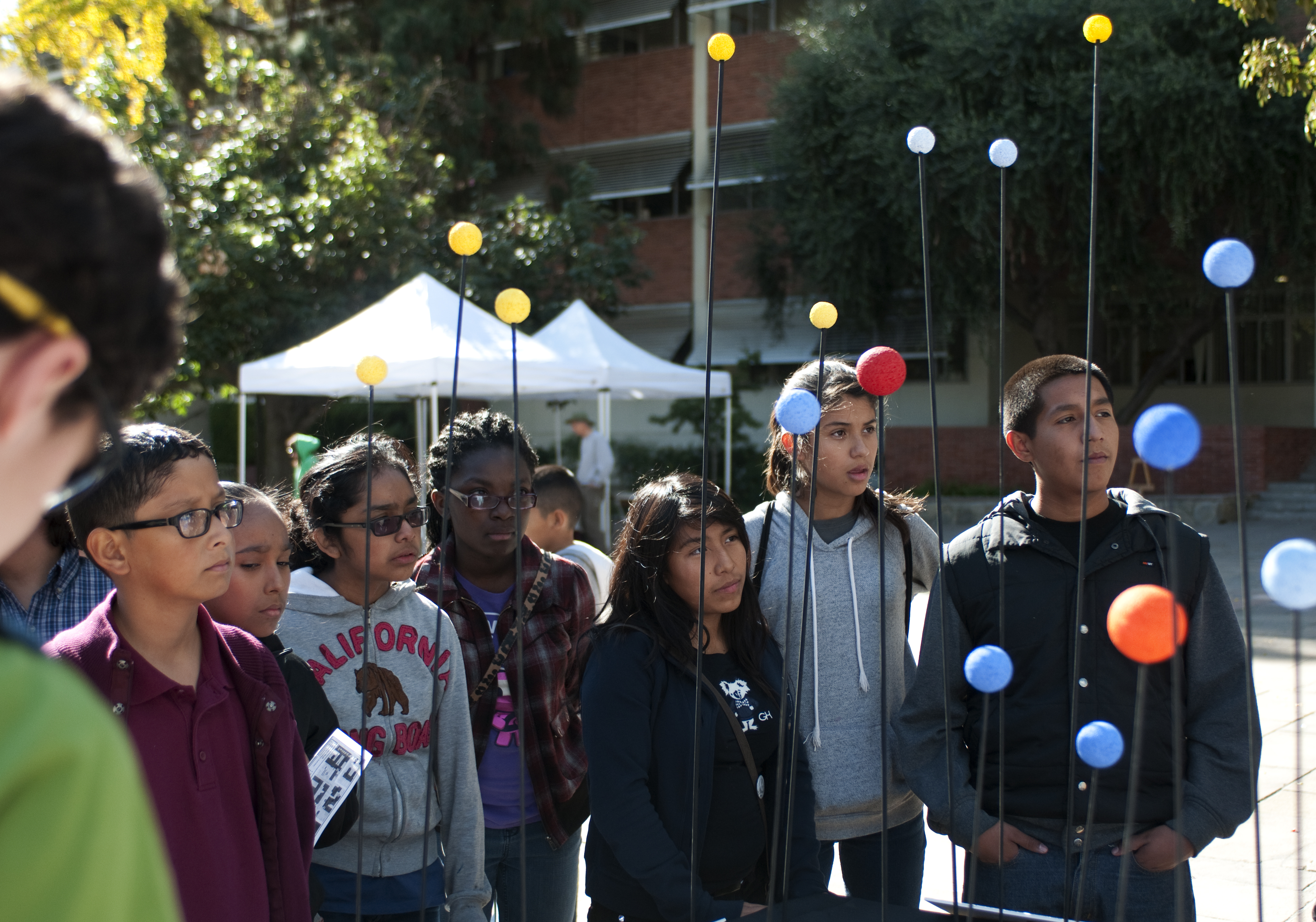Parents and friends in tow, children ran around South Campus on Saturday, making fossil casts, programming robots and eating liquid nitrogen ice cream.
The activities and demonstrations were part of the fourth annual Exploring Your Universe! event put on by volunteers from various science-oriented organizations based at UCLA and off campus.
“We want to inspire interest in science to the general public and make it accessible (to them)” said Shane Frewen, a graduate student in the department of physics and astronomy who helped organize the event.
Breann Sitarski, an astronomy graduate student who helped organize the event, said the best parts of Exploring Your Universe! for her is seeing the smiles and looks of awe on children’s faces.
Graduate students Kristin Kulas and Gregory Mace started the event in 2009, which initially intended to make science available to underprivileged children. Since then, the event has expanded to serve families of all demographics from Southern California, and works with different departments on campus to put on the activities.
Frewen said more than 2,000 people attended this year’s event, according to ticket distributions for the planetarium show. The show, which took place in the Mathematical Sciences building, was the most popular activity, he added.
Five UCLA professors gave mini-lectures on topics ranging from the physics of baseball to the galactic center.
Children launched foam rockets and learned how a rocket launches at the rockets booth.
At an information booth, volunteers gave the children “Passports” which contained five activities they had to perform at various booths. Once the children completed the activities, the children would take the passports back to the information booth and get a free poster. The goal was to ensure that the children learned something, Frewen said.
Five-year-old Teddy Stoltz said he was excited about learning about the solar system so that he could draw it. He jumped up and down after he got his passport and added that he wanted a poster about the solar system.
Tom Esposito, an astronomy graduate student, said he was surprised four-year-olds and five-year-olds asked him about physics concepts such as thrust, a force that moves aircrafts through the air.
“It’s amazing the things they know at such a young age,” he added.
Nearby, fourth-year neuroscience student Christine Truong submerged Alka Seltzer tablets in water to demonstrate how particles react differently on the nanoscale. This was Truong’s second time volunteering at the event on behalf of the University of California Center for Environmental Implications of Nanotechnology.
Truong said she enjoys working with kids. She added that she not only finds them adorable, but also smart.
“When you explain a principle to (the kids), their eyes light up,” she said.
